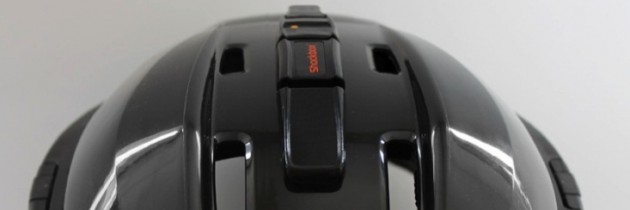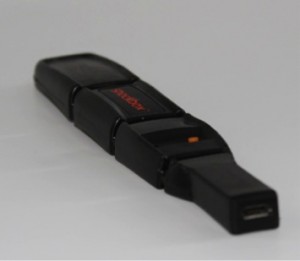Local Ottawa sensor technology offers solutions to rising concussion concerns
By Kiran Rana and Philippe de Montigny
When ten-year-old Cameron slammed head first into the boards during a hockey game, his coach and father Scott Clark thought nothing of it.
“He had hit his head going into the boards but said he was fine and looked fine, so we let him back on the ice,” said Clark, a former e-commerce entrepreneur.
It wasn’t until they returned home after the game that Clark realized his son was far from fine. Cameron started violently throwing up and after he was taken to the hospital it became clear to Clark his son had suffered a concussion.
Within days of that experience, Clark co-founded Impakt Protective, an Ottawa-based company working on a helmet that should make it easier to detect concussions.
Clark’s partner is his friend Danny Crossman, a former army bomb disposal officer with the British Military – and contractor for the United States Marine Corps – who had done previous work with helmet sensors for soldiers.
Founded in 2010, Impakt creates wireless sensors that measure the impact of force during a hard hit. It effectively expands Crossman’s military work into the realm of sport.
The award-winning Shockbox technology consists of sensors attached to the inside or outside of the sports helmet. The Shockbox uses Bluetooth wireless technology to send data on the severity of a hit to a subscriber’s smartphone.
“I didn’t really see the application to sports to be honest until it happened to my son,” Clark said.
“Players are coming off the ice and their common answer is that they’re fine,” he continued. “Their statement is they’re okay and to put them back on.”
He said the main goal of the technology is to encourage and facilitate players getting checked for concussion.
With the recent lawsuits against the National Hockey League and American National Football League by professional athletes, the issue of sports-related brain injuries has become a prominent health and safety concern.
“What they’re suing for is that they didn’t know the extent to which the concussion could affect them later in life.”
Crossman said Impakt Protective wants to focus on being a leader in research. The company has been working with the Carleton women’s hockey team for two years, analyzing the efficiency of their sensors on hockey helmets.
Clark said trainers and coaches don’t always see when a hit or injury occurs and the phone app provides useful information. “We wanted to watch the game and track impacts as they happen,” he said. “We were able to identify some impacts that eventually led to concussions which would otherwise not have been noticed.”
One of the main issues with identifying a concussion or mild traumatic brain injury (MTBI) is that people react differently to head trauma. While some lose consciousness or suffer from dizziness right away, others – like Clark’s son – don’t show symptoms until much later.
“The thing that is important to note is that, if they have time to recover, they get back to normal relatively quickly,” Clark said with regards to the recovery rate of concussions.
“But we end up having situations where if the parent or coach doesn’t know that the kid has a concussion or an MTBI, they’re not recovering properly.”
The unclear nature of concussions and lack of awareness on when to treat a player is where Clark thinks their technology offers a solution.
Cover photo courtesy Scott Clark, Impakt Protective


